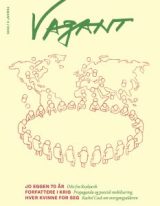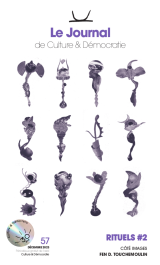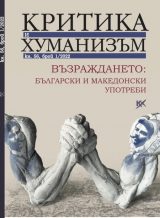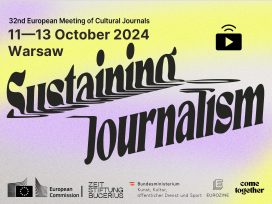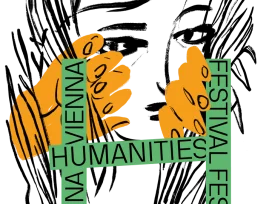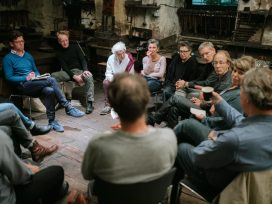A constrained mother tongue is resilient in recalled memory. Those who no longer speak Belarusian tenderly piece together often painful cultural threads, processing trauma to keep their ‘mova’ alive.
Articles
Moral truth
De Nederlandse Boekengids 8–9/2025
Thirty years on from the Srebrenica massacre, how The Netherlands has failed to acknowledge the ‘moral truth’ of the victims. Also: perspectives on the fascism debate; and why society needs a conversation about dying.
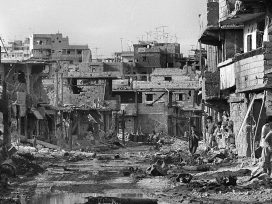
The outbreak of the Lebanese civil war fifty years ago inaugurated an era of nation-state collapse in the Arab world. In failing to mediate, the international community carries responsibility for the sense of impotence felt in societies in which violence dominated everything but resolved nothing.
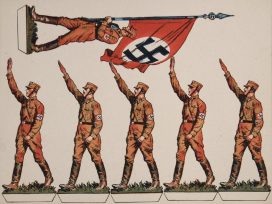
The nexus of radical inequality, social atomization and male victimhood has been exploited before. But why now, on such a scale? To understand the appeal of the far right today we need to examine the origins of the fascist myth of primordial male kinship.
Recommended topics
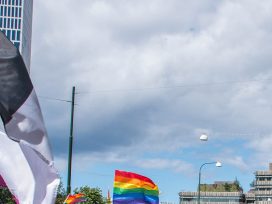
Should sexual relationships, with all their complications, really be a benchmark of societal acceptance? Vox Feminae investigates the history of asexuality and aromanticism: pathologized by psychologists and medical professionals, even at times minoritized within LGBTQIA+ communities.

European railways are often praised for their comprehensive continental coverage, yet it frequently falls short of meeting the evolving needs of the public. This episode of Standard Time discusses public investment and corruption, and how railway systems could transform.
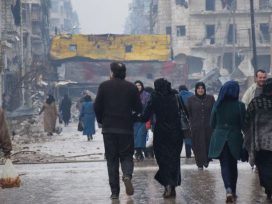
The art of despair
Interview with Yassin al-Haj Saleh
‘The Syrian tragedy cannot be summed up simply as the murder of hundreds of thousands of human beings; it also involved the denial of any meaning to the extreme suffering of the Syrian people.’

“Come Together” is founded on the principles of partnership and peer-to-peer learning among individuals within community media organizations situated in six different countries. Instead of generating entirely new knowledge, the initiative aims to unearth and leverage the existing wisdom residing within these organizations to foster innovative approaches.
Eurozine review
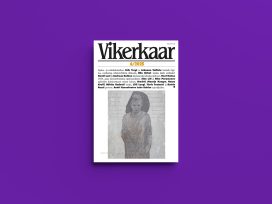
Crises past and present
Vikerkaar 6/2025
Vikerkaar on why grey rhinos are riskier than black swans when it comes to epochal crises; how the Estonian government averted a crisis of state by crushing fascism in 1934; and why Estonia’s AI enthusiasm may provoke a crisis of education.
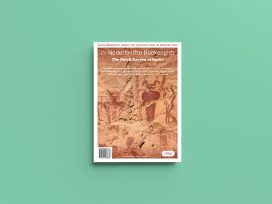
Moral truth
De Nederlandse Boekengids 8–9/2025
Thirty years on from the Srebrenica massacre, how The Netherlands has failed to acknowledge the ‘moral truth’ of the victims. Also: perspectives on the fascism debate; and why society needs a conversation about dying.
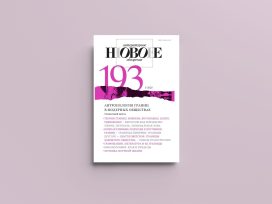
Borders and empire
Novoe Literaturnoe Obozrenie 193 (2025)
Borders and boundaries in the Soviet order: How the rhetoric of borderlessness hid imperial practices. Also: filmmaker Andrei Konchalovsky and the metaphysics of oil; and Andrei Sinyavsky’s literature of delinquency.
Focal points
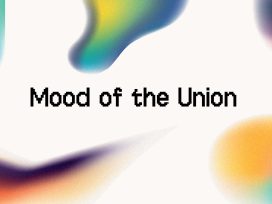
The European Parliament elections on 9 June are a referendum on EU policy since 2019. Will voters give Europe the green light for further progress, or pull the brakes? A new Eurozine series measures the political atmosphere in the EU and its neighbourhoods at this crucial moment.

Food and water systems under pressure: as the end of abundance becomes an everyday experience in Europe, we are thinking more closely about how our food reaches the table.

Post-revolutionary Ukrainian society displays a unique mix of hope, enthusiasm, social creativity, collective trauma of war, radicalism and disillusionment. With the Maidan becoming history, the focal point ‘Ukraine in European Dialogue’ explores the new challenges facing the young democracy, its place in Europe, and the lessons it might offer for the future of the European project.

Some observers, recalling the disasters of the 1920s and 30s, are suggesting that an anti-democratic counterrevolution on a global scale has begun. But is the writing really on the wall? Or does declinism prevent us from recognizing moments of democratic renewal?

